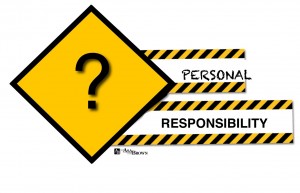Glenn Sheppard wrote the article, Notebook on Ethics, Standards of Practice, and Legal Issues for Counselors and Psychotherapists in Cognica’s Winter 2018 Edition. His article reviewed ethical considerations for mental health service providers to uphold privacy and confidentially. I believe that he provided good merit and I wanted to continue and augment the dialogue to address other ways to uphold privacy and confidentiality when confronted with antagonistic attempts to gain unprivileged information.
I wanted to share my personal professional experiences. While acting as a regional director of one of the largest non-profit organizations in the US, both officials and family members made several attempts to gain unprivileged information.
Family Members
The instance that I recall most vividly were the attempts made by a few people to gain information on a domestic violence victim. Initially, the first caller claimed to be a family member. As for anyone without a signed disclosure or a warrant, we were neither able to confirm nor deny providing services to a client. I reminded my staff that even when family members make inquires that we cannot provide information and breach a client’s confidentiality.
Investigators
I believe that we had three attempts to gain information on the same client within a 1-2 week period. On one of the final attempts, a man claimed to be an investigator. Despite the inquirer’s credentials, my or my staff’s responsibility to maintain confidentiality had not changed. Fortunately, I had sat down with my staff and requested that they be vigilant during this time, because it appeared that requests for confidential information had increased.
I too was a domestic violent survivor who had to flee an unsafe situation. I had personally experienced service providers who did not understand the scope in which to preserve my or my children’s confidentiality. Unfortunately, officials were oftentimes the worst at maintaining my family’s confidentiality. I learned how to put safety features in place for me and children and my clients later benefited, as I understand firsthand the scope of avoiding breaching confidentiality.
Attorneys
Whenever an attorney would call, my staff would forward the call to me. Some attorneys were seeking information on behalf of their client. Nonetheless, my client would still need to sign a release prior to my submitting any information to their attorney. Another attorney sent over a court order not signed by a judge. We were not required to respond to any request by attorneys that do not have a proper endorsement by a judge.
Oklahoma State Laws
Oklahoma State Board of Behavioral Health, Licensed Public Counselor Rules (2016). Title 86, State Board of Behavioral Health Licensure, Chapter 10, Licensed Professional Counselors; Subchapter 3. Rules of Professional Conduct.
Confidentiality
LPCs shall maintain the confidentiality of any information received from any person or source about a client, unless authorized in writing by the client or otherwise authorized or required by law or court order
American Counseling Association
Code of Ethics Section B, Confidentiality and Privacy
B.1.c. Respect for Confidentiality
Counselors protect the confidential information of prospective and current clients. Counselors disclose information only with appropriate consent or with sound legal or ethical justification. p.6
Canadian Counselling and Psychotherapy Association
Standards of Practice, B. Counselling Relationships, Confidentiality
Counsellors have a fundamental ethical responsibility to take every reasonable precaution to respect and to safeguard their clients’ right to confidentiality, and to protect from inappropriate disclosure, any information generated within the counselling relationship. This responsibility begins during the initial informed consent process before commencing work with the client, continues after a client’s death, and extends to disclosing whether or not a particular individual is in fact a client. p.10
It is important that as mental health professionals we are aware of the guidelines of our prospective licensing, certification, and professional boards. National professional organizations, such as the Canadian Counselling and Psychotherapy Association and the American Counseling Association also provide guidelines for us to follow. In addition, if there is ever any question as to what you should do when confronted with such a situation, consider 1) Consulting with a colleague and 2) Researching your laws and regulating bodies of your profession. You may also consider finding out the requirements of horizontal mental health professions. For example, I am a Licensed Public Counselor but I may want to keep in mind requirements of Social Workers, Licensed Marriage and Family Counselor, and Psychologist who may have a more stringent state requirement.
Lakawthra Cox, MA, MAPC, LPC, NCC, CCC
References
Oklahoma State Board of Behavioral Health, Licensed Public Counselor Rules (2016). Title 86, State Board of Behavioral Health Licensure, Chapter 10, Licensed Professional Counselors; Subchapter 3. Rules of Professional Conduct. https://www.ok.gov/behavioralhealth/documents/Permanent%20Rules%20-%20LPC%20-%209-11-2016.pdf
American Counseling Association. (2014). Code of Ethics: Section B, Confidentiality and Privacy. B.1.c. Respect for Confidentiality. p.6. https://www.counseling.org/resources/aca-code-of-ethics.pdf.
Canadian Counselling and Psychotherapy: Association. Standards of Practice, 5th Ed. (2015). B. Counseling Relationships, Confidentiality, p.10. https://www.ccpa-accp.ca/wp-content/uploads/2015/07/StandardsOfPractice_en_June2015.pdf
*The views expressed by our authors are personal opinions and do not necessarily reflect the views of the CCPA


